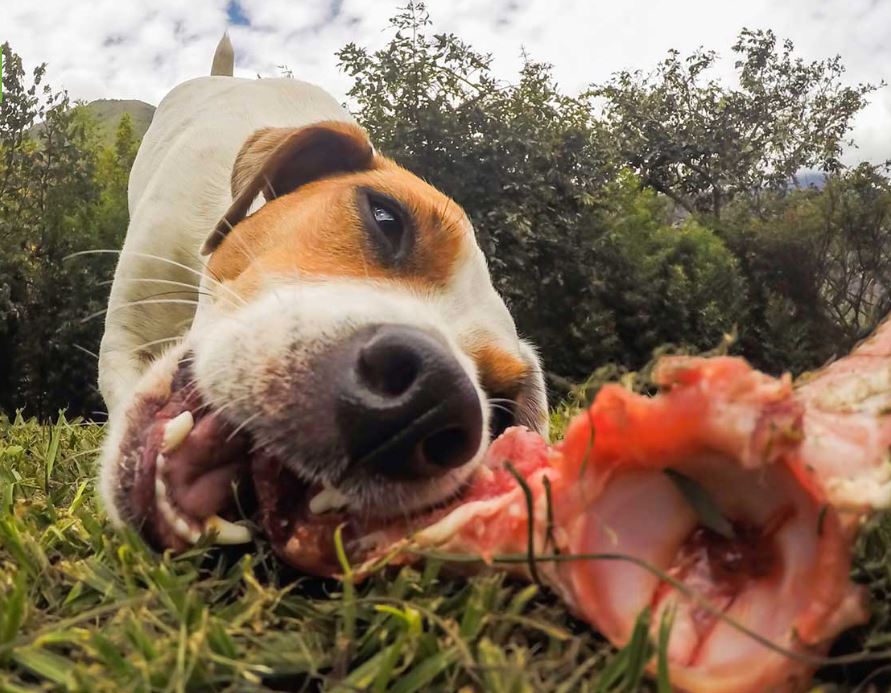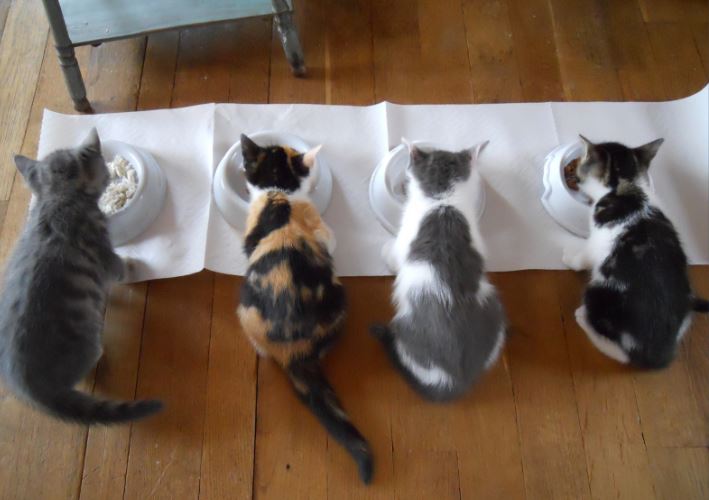

Benefits and Risks of a BARF Diet
Raw Meat-Based Diets, or RMBDs, have become a popular choice for pet parents wanting an alternative to feeding commercially produced pet foods. But do these diets provide a balance of all the necessary nutrients for our pets, and are they safe to feed?
RMBDs, also called “biologically appropriate” or Bones and Raw Food (BARF) diets, consist of uncooked animal products purchased as a mix or prepared at home.
The growing interest in RMBDs over the past 20 years has primarily been driven by claims that cats and dogs fed raw experience marked health benefits. We hear about shinier coats, stronger immune systems, improved skin conditions, superior bone health and better weight management. Still, these remain largely unsubstantiated by scientific evidence. While some studies have shown modest improvements in digestion in pets fed RMBDs, this is most likely down to the ingredients used rather than the fact that they’re fed raw. Far more evidence on RMBDs points to their inherent risks to human and animal health due to the proliferation of harmful bacteria (incl. those resistant to antibiotics).
Because the raw ingredients in RMBDs do not undergo heat processing or sterilisation like commercially produced pet foods, the high levels of bacteria and parasites potentially present in raw food are a significant concern. Additionally, the common food preservation methods used in commercially prepared RMBDs, e.g. dehydration, freezing or freeze-drying, do not destroy all pathogens.
Numerous studies comparing raw pet foods to heat-processed pet foods have reported higher prevalence rates of bacteria, including Salmonella, E. coli, Campylobacter, Listeria, Brucella, and Yersinia enterocolitica, among others— both in the raw food itself and in the faeces excreted by pets fed a raw food diet. Even more worrying are studies showing that RMBDs are linked to increased levels of antimicrobial-resistant (AMR) bacteria. While AMR bacteria have also been found in standard dried and canned pet foods, several studies have indicated they are present at much lower levels than either homemade or commercially prepared RMBDs.
As pet parents, we love getting close to our pets and cuddling them, which increases the risk of exchanging bacteria (including AMR bacteria) between humans and pets. Bacteria like Salmonella, Campylobacter, and E. coli can cause illness in humans even if they might not make pets sick. The possibility of transmitting AMR bacteria from pets to humans especially concerning for those especially vulnerable to the risk for infection, e.g. babies, the elderly, pregnant or immune-compromised individuals.


Tips For Safe BARF Feeding
- Opt for high-quality meats and vegetables.
- Sterilise all utensils, bowls and surfaces thoroughly after each meal preparation.
- Work with an animal nutritionist to ensure that the ingredients you choose provide the full spectrum of nutrients required by your dog or cat are balanced.
- If anyone in the home, human or animal, is immune-compromised, consider home-cooking or a commercially produced pet diet over feeding raw.
- Always let your vet know that you feed raw, as some prefer not to risk the health of other immune-compromised patients by hospitalising raw-fed pets except in an emergency.
- Avoid taking raw-fed pets with you when visiting the elderly or other immune-compromised loved ones.
Various factors need to be given serious consideration before adopting RMBD as a permanent diet, but, managed correctly, in close consultation with a qualified animal nutritionist, the risks of raw feeding can be kept to a minimum.
